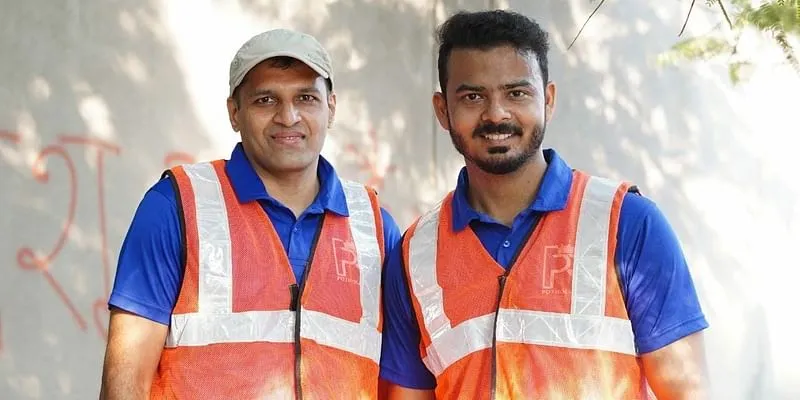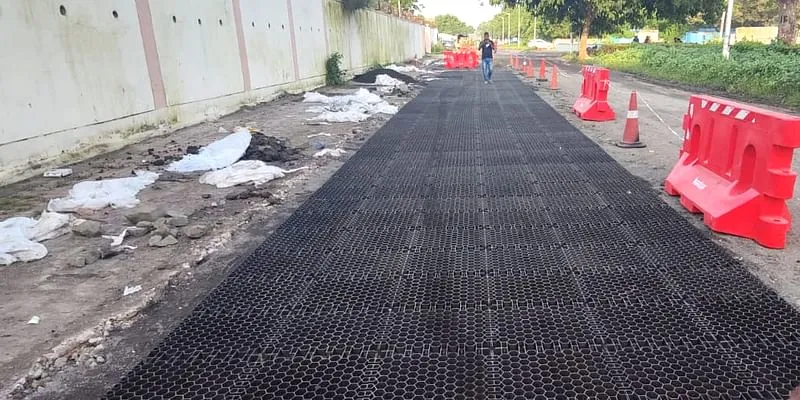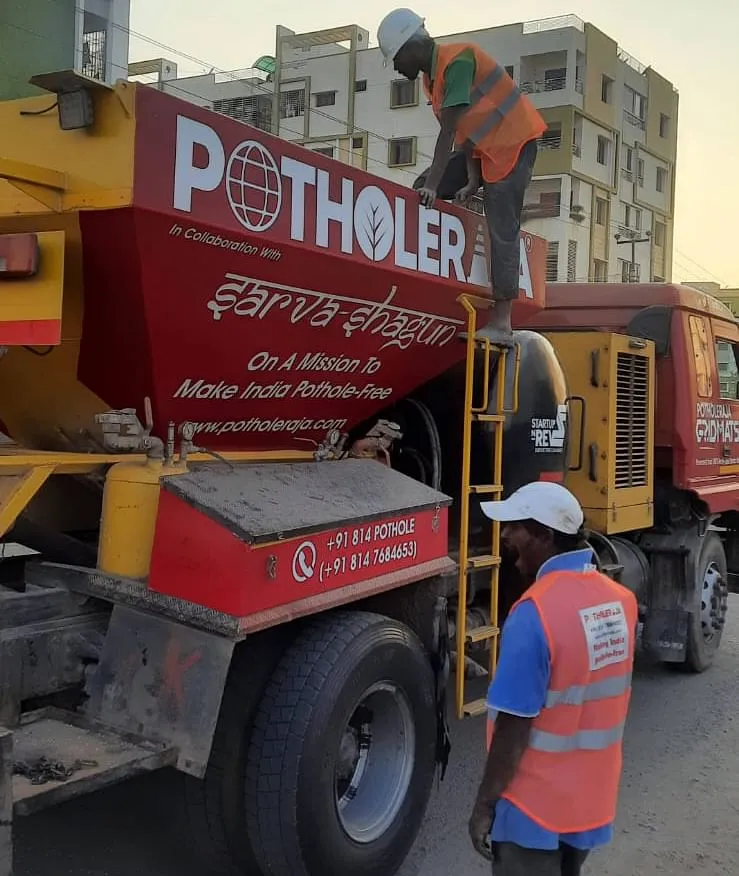PotHoleRaja uses recycled plastic, tech to make roads safer
This Bengaluru-based social enterprise is on a mission to make roads pothole-free using sustainable and quick repairing solutions.
For motorists, potholes are a daily nightmare, especially during monsoons. In 2019 and 2020, potholes were the cause of 4,775 and 3,564 accidents respectively in India.
Founded by Prathap Bhimasena Rao and Sourabh Kumar in 2016, is a social enterprise working to upgrade India's infrastructure via citizen intervention.
PotHoleRaja directly works with citizens. Alternatively, it can be commissioned by institutes, social collectives, or even government bodies to undertake large-scale projects.

Prathap Bhimasena Rao (L) and Sourabh Kumar
“When people think about potholes, the first thing that comes to mind is that it the responsibility of the government since not everyone thinks fixing it as a primary responsibility of themselves. When we started off, our main challenge was to break this myth. We wanted to win the mindset and change the way people think,” Sourabh tells SocialStory.
GridMats
PotHoleRaja recently introduced GridMats, a patented eco-friendly product made from recycled polypropylene waste. The material is durable and crafted from 100% recycled plastic waste to construct pavements/roads.
Industrial garbage serves as the organisation’s primary supply of recycled plastic. Recycling companies first pick up the trash, then sort and clean it before delivering it to PotHoleRaja's factory in Hosur, a city about 40 kilometres southeast of Bengaluru.
The recycled polypropylene waste, now in a pellet form, is used to make GridMats, a honeycomb structure. Polypropylene is usually used to make buckets, plastic chairs, and the hard plastic found in cars.

GridMats
GridMats are placed above the bedding layer and packed with different filling options, creating a permanent, flat, high-quality surface in less than half the time, and at 20%-25% cheaper the cost.
Recently, a road in Bengaluru was conducted using over 3,000 kg of recycled plastic that was used in GridMats.
Sourabh says that PotHoleRaja intends to use plastic waste to make long-lasting and sustainable roads and pavements. The organisation doesn’t use any steel reinforcements used in traditional concrete roads. The thickness of the pavements is five times less than the traditional concrete roads. This process of building pavement uses almost 80% less concrete and emits 80% less carbon emission.
“Everybody today is focussed on sustainable roads. With the kind of climate change the world is seeing, people are now more conscious about using better technology so that carbon emission can be reduced,” he adds.
Until last year, the enterprise used to look into only maintaining roads. However, the team also started constructing the road after developing GridMats.
Other projects
Apart from GridMats, PotHoleRaja has also partnered with Haryana-based SarvaShagun Infra to introduce a first-of-its kind automated machinery that can fix potholes within 15 minutes.
The machine can fill potholes in three steps: first, a high-pressure air blower is used to clean the pothole; second, a rapid-setting emulsion is sprayed as a bonding layer; and third, high-pressure construction aggregate is laid over the surface. The road is opened to traffic immediately after the process.

The automated machine
According to Sourabh, his team does not usually work directly with the governments on the public roads.
“Our focus has been on how we can work with a lot of companies through their CSR activities for impact and showcase the latest technology which the government can later replicate and manifest better,” he adds.
People from across the country report potholes on the enterprise website, according to the co-founder. In return, the PotHoleRaja team helps the public to fix the roads. This is done usually with a mix of 2-3 in-house team members, its machinery and the support from local people.
One of the key policies of the enterprise is to give employment to only those people who are from the same city.
Future plans
Going forward, the team has multiple projects lined up across states. One of them is a CSR project with Hyundai on the roads of Kerala. The focus is making the public roads safe by doing the necessary infrastructure upgrades- starting with Kochi.
The team is also looking at overseas expansion as well. “We got requests from Africa and Southeast Asia. They want to replicate the PotHoleRaja model- right from construction of roads from plastic waste to engaging the citizens as a part of development of infrastructure,” Sourabh says.
Edited by Affirunisa Kankudti








